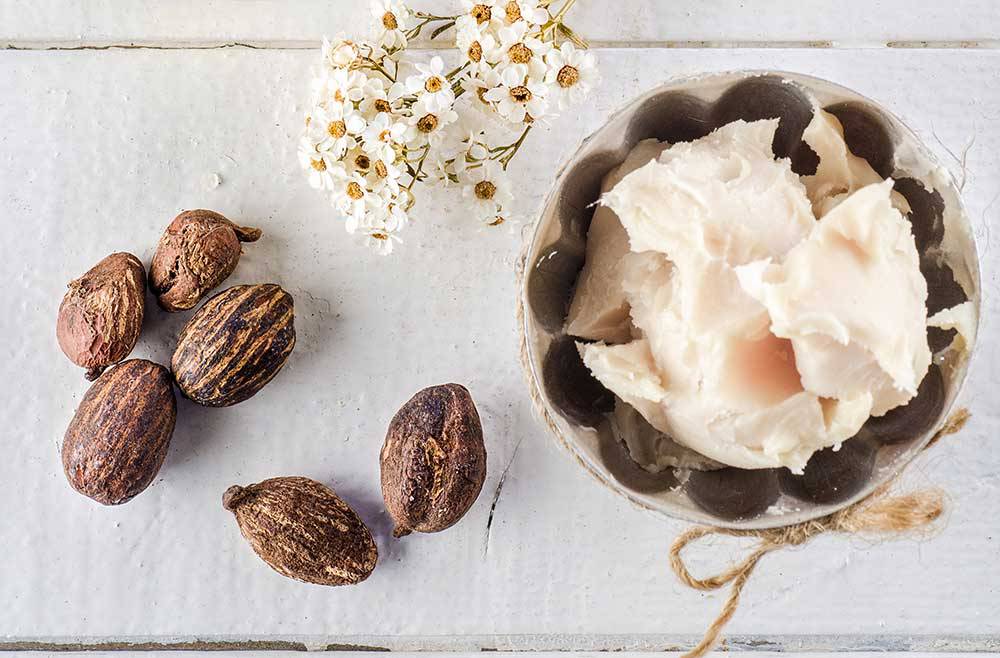Shea vs. coconut – Which butter for your hair?
Hair butter is a thick, natural substance obtained from nuts of plants growing in tropical regions of the world. Hair butters are in fact – in spite of their consistency – nothing else, but concentrated natural oils. They just need a bit higher temperature to become liquid (usually butters melt at 33 degrees and higher).
 The most popular hair butters are: coconut butter (coconut oil) and shea butter (karite). These are butters with beautiful aroma, affordable price and appreciated due to diversity of essential fatty acids (saturated and monounsaturated), vitamins and minerals. Their consistency makes women use them for hair care, but also as an addition to body balms and face creams.
The most popular hair butters are: coconut butter (coconut oil) and shea butter (karite). These are butters with beautiful aroma, affordable price and appreciated due to diversity of essential fatty acids (saturated and monounsaturated), vitamins and minerals. Their consistency makes women use them for hair care, but also as an addition to body balms and face creams.
If you’re thinking about buying hair butter and you do not know, which to choose – read below article. It will dispel all your doubts and show you the differences between two most popular hair butters.
Coconut butter (coconut oil)
This butter took by storm the entire cosmetic market. It is great as a base for all the hair cosmetics, while its unrefined form is available in almost every shops with natural cosmetics.
Coconut butter has white colour and nice smell reminding of vacation on tropical island. Its aroma is obviously of coconut and is really soft butter, that is easy to apply on hair. It contains over 80% of fatty acids (including about 50% of lauric acid). It is an important information, because saturated fatty acids with small particles are dedicated mainly to hair with low porosity (i.e. thick, strong and stiff). Unfortunately, this butter is know to cause frizzing hair with other hair types. Coconut oil softens thick strands by providing them with gloss and making them silky and nice in touch. Protects hair against unfavourable impact of atmospheric factors, but also against damages while making it impossible for toxins to penetrate inner hair structures. It is perfect strengthening and conditioning treatment for hair.
Shea butter (karite)
This butter is a bit harder than coconut oil, has brown colour, slightly sweet and nutty scent.
Its composition is entirely different from coconut oil, because shea contains more or less equal content of saturated and monounsaturated fatty acids. This makes – in contrast to coconut oil – shea butter suitable for women with low porosity hair and medium porosity hair. This widens the circle for people who can potentially use shea butter and makes it so popular. Therefore, it will work great for almost every hair, beside damaged.
Shea butter contains natural filters that protect against unfavourable sun impact and mechanical damages. What is more, it consists of numerous vitamins, which are essential for healthy hair growth. Shea butter takes care also of the scalp, penetrates hair bulbs, strengthens them and prevents hair loss. It perfectly conditions hair, and its liquid form can be achieved in 33°C, so is extremely easy to apply. Ladies with low porosity hair should be careful, nonetheless, and apply small amounts of shea butter or apply it exclusively on ends to avoid excess weighting down.
To sum up – as far as shea butter is more universal due to its use on both medium and low porosity hair, coconut oil will be safer for the low porosity hair – while using it you will be certain that hair will not be weighted down. However, shea butter is great as a serum for hair ends or as an addition to hair masks and conditioners.

